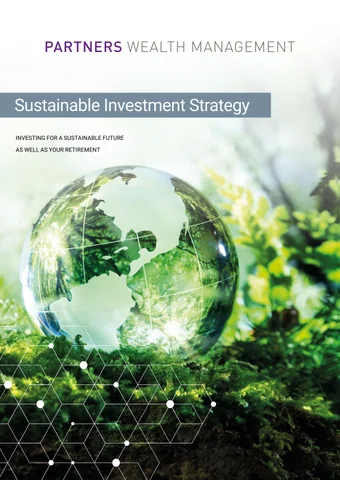
Introduction to Sustainable Wealth Engineering
Sustainable Wealth Engineering is more than just a financial trend—it’s a complete framework for building wealth that lasts generations. Unlike traditional financial planning, which often focuses only on profits, this approach integrates ethical investing, environmental responsibility, social impact, and resilient financial systems. It aligns wealth creation with values, ensuring long-term prosperity while minimizing risks tied to unsustainable industries.
This method appeals to modern investors who want their money to grow while also making a difference in the world. It combines traditional wealth-building principles with innovative strategies rooted in sustainability, technology, and conscious capitalism.
The Core Principles of Sustainable Wealth Engineering
At its heart, Sustainable Wealth Engineering revolves around four key pillars:
-
Ethical Responsibility – Investments that align with human and environmental values.
-
Resilient Design – Portfolios built to withstand economic, environmental, and geopolitical shocks.
-
Long-Term Value Creation – Focusing on growth that compounds across generations.
-
Integration of Technology and Data – Using AI, blockchain, and analytics for smarter, greener decisions.
These principles not only shape wealth strategies but also transform how investors perceive growth—shifting the focus from quick returns to lasting impact.
Why Sustainable Wealth Engineering Matters Today
Traditional financial strategies often overlook the risks associated with unsustainable industries, such as fossil fuels, exploitative labor, or resource overconsumption. With climate change, regulatory shifts, and evolving consumer values, such approaches can expose investors to high risks.
Sustainable Wealth Engineering addresses these challenges by directing capital toward renewable energy, clean technologies, green infrastructure, and socially responsible businesses. By doing so, it ensures not only strong returns but also societal progress.
Sustainable Wealth Engineering and Ethical Investing
Ethical investing is at the center of Sustainable Wealth Engineering. Investors today seek to support companies that demonstrate corporate responsibility, diversity, fair labor, and eco-friendly practices.
For instance, funds that prioritize renewable energy or businesses with carbon-neutral practices are not only socially beneficial but also resilient against future regulations and shifting consumer trends. Ethical investing also strengthens brand reputation, offering investors both moral and financial returns.
The Role of Technology in Sustainable Wealth Engineering
Technology plays a transformative role in this new wealth paradigm. Artificial Intelligence (AI) helps analyze massive datasets to predict long-term environmental and financial outcomes. Blockchain ensures transparency in investments, reducing risks of greenwashing.
Fintech platforms now allow investors to track the sustainability score of their portfolios, helping them measure not just profits but also social and environmental impact. This integration of tech makes wealth engineering more accurate, transparent, and impactful.
Sustainable Wealth Engineering and Risk Management
One of the strongest advantages of Sustainable Wealth Engineering is its robust risk management. Traditional investments may ignore environmental and social risks, but sustainable strategies actively mitigate them.
For example:
-
Climate Risk – Investing in renewable energy reduces exposure to volatile oil markets.
-
Regulatory Risk – Supporting companies that comply with ESG (Environmental, Social, Governance) standards avoids penalties.
-
Market Risk – Future consumers prefer sustainable brands, creating a built-in competitive advantage.
Thus, by aligning financial portfolios with sustainability, investors protect their wealth from unpredictable future disruptions.
Building a Portfolio with Sustainable Wealth Engineering
Designing a portfolio around Sustainable Wealth Engineering involves a balanced mix of assets:
-
Green Bonds – Funding environmentally friendly projects.
-
Sustainable ETFs – Exchange-traded funds focused on ESG standards.
-
Impact Investments – Direct investments in startups or ventures solving social/environmental problems.
-
Real Assets – Renewable energy infrastructure, eco-housing, and sustainable agriculture.
Such diversification ensures financial growth while advancing sustainable global goals.
Long-Term Impact of Sustainable Wealth Engineering
Unlike short-term speculative strategies, Sustainable Wealth Engineering creates intergenerational wealth. Families and businesses adopting this approach build legacies rooted in both prosperity and purpose.
It ensures that future generations inherit not just financial capital but also a healthier planet and stronger social systems. This makes it a truly future-proof investment philosophy.
Challenges in Implementing Sustainable Wealth Engineering
Despite its many advantages, Sustainable Wealth Engineering faces challenges:
-
Greenwashing – Some companies falsely claim sustainability.
-
Lack of Awareness – Many investors are still unaware of ESG frameworks.
-
Short-Term Mindset – Traditional finance often prioritizes immediate gains over long-term sustainability.
-
Data Gaps – Reliable sustainability metrics are still evolving.
However, as transparency improves and demand grows, these challenges are gradually being addressed.
Sustainable Wealth Engineering vs. Traditional Wealth Planning
| Aspect | Traditional Wealth Planning | Sustainable Wealth Engineering |
|---|---|---|
| Focus | Profit-first | Profit + Purpose |
| Risk Management | Limited (market & inflation) | Holistic (climate, regulation, ethics) |
| Time Horizon | Short to medium term | Long-term & intergenerational |
| Transparency | Limited reporting | ESG-based metrics & blockchain |
This comparison highlights why forward-thinking investors are shifting towards sustainable approaches.
The Future of Sustainable Wealth Engineering
As global economies move towards decarbonization and ethical capitalism, Sustainable Wealth Engineering will no longer be optional—it will be essential. Governments are enforcing stricter ESG regulations, and consumers increasingly support sustainable brands.
Future investors who adopt this approach early will benefit from compounded growth, resilience against shocks, and reputational strength. The wealth of tomorrow will not only be measured in monetary value but in its contribution to a balanced, sustainable world.
FAQs on Sustainable Wealth Engineering
1. What is Sustainable Wealth Engineering?
It’s a financial strategy that combines ethical investing, sustainability, and technology to build long-term, resilient wealth.
2. How is Sustainable Wealth Engineering different from traditional investing?
Traditional investing focuses on profits, while this approach integrates social, environmental, and financial outcomes.
3. Is Sustainable Wealth Engineering only for large investors?
No, individuals, small businesses, and institutions can all benefit by adopting sustainable financial practices.
4. What types of assets are included in Sustainable Wealth Engineering?
Green bonds, ESG-focused ETFs, impact investments, renewable infrastructure, and sustainable agriculture.
5. Can Sustainable Wealth Engineering provide high returns?
Yes, sustainable investments often outperform traditional ones due to long-term stability and regulatory advantages.
6. How does technology support Sustainable Wealth Engineering?
AI and blockchain ensure transparency, predictive analysis, and accurate sustainability tracking.
7. What risks does it help mitigate?
It reduces exposure to climate risks, regulatory fines, and changing consumer preferences.
8. Is ESG investing the same as Sustainable Wealth Engineering?
ESG is a component, but wealth engineering is broader—combining ESG with technology, strategy, and intergenerational planning.
9. Can Sustainable Wealth Engineering be applied in emerging markets?
Yes, it’s especially powerful in emerging economies where sustainable infrastructure is growing rapidly.
10. What is the ultimate goal of Sustainable Wealth Engineering?
To create financial prosperity that is resilient, ethical, and beneficial for future generations.



